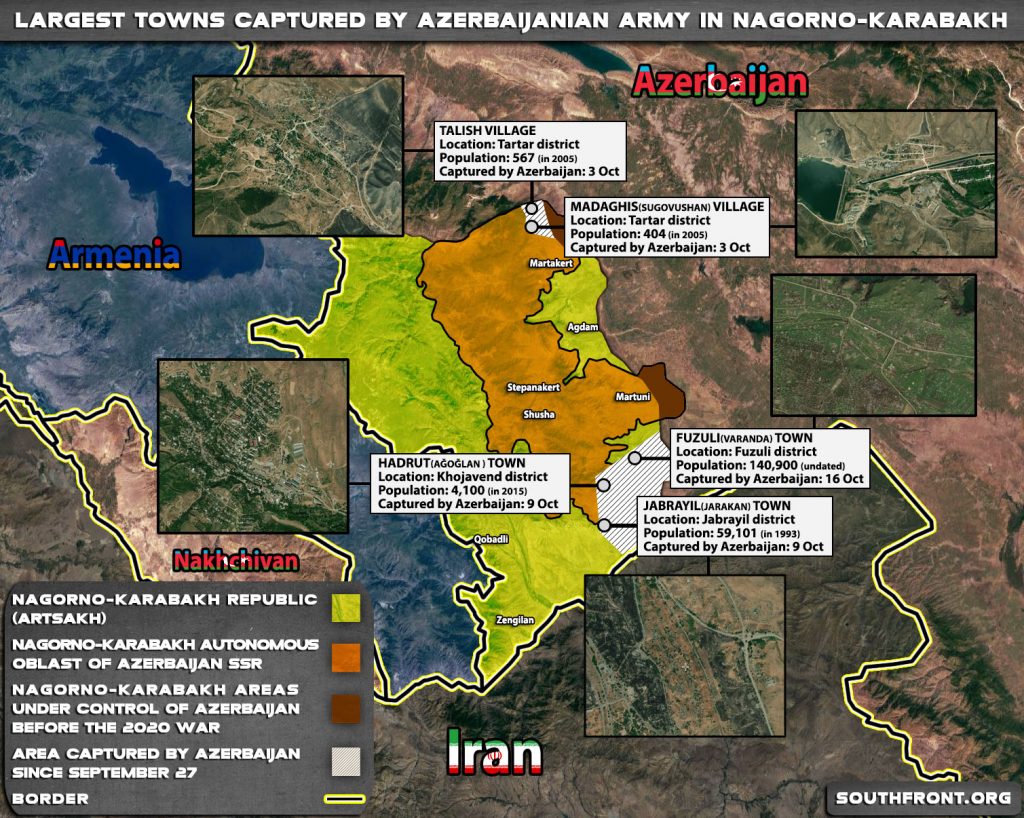On August 1, Armenia reported on the movement of Azerbaijani military units on the line of contact in Nagorno-Karabakh and shelling of Armenian positions.
The Ministry of Defense of Artsakh (Nagorno—Karabakh) reported that the Azerbaijani Armed Forces fired at several villages in the republic at once.
On August 1, starting at 9 am, Azerbaijani units resorted to provocations on a number of sections of the northern and northwestern borders of the Republic of Artsakh, attempting to cross the contact line, the ministry said in a statement.
No losses on the Armenian side were reported.
On July 31, Azerbaijan accused Armenia of attacking its military positions in the disputed region of Nagorno-Karabakh.
In a statement, the Azerbaijani Ministry of Defense said that Armenian forces opened fire at its positions in Gadabay, Kalbajar and Khojavend. The ministry didn’t report any casualties or material losses were as a result of the alleged Armenian attack.
Azerbaijani troops were spotted moving towards the conflict zone. Armenian army forces are pulling back to the border in response to Azerbaijani manoeuvres.
New round of escalation in the region took place soon after Washington held talks with the warring sides.
On July 25, U.S. Secretary of State Anthony Blinken discussed the situation in Nagorno-Karabakh with Armenian Prime Minister Nikola Pashinyan and Azerbaijani President Ilham Aliyev. The talks were held separately. Blinken reportedly urged both sides to seek peace and continue their dialogue. The U.S. Secretary of State noted the important role of the EU in the resolution of the conflict and said that the U.S. is ready to support the long-term peace.
Azerbaijani Foreign Minister Ceyhun Bayramov and U.S. Undersecretary of State for European and Eurasian Affairs Karen Donfried also held talks on August 1. They exchanged their views on the current situation regarding the post-conflict normalization of relations between Azerbaijan and Armenia.
Bayramov claimed that Azerbaijan is set to ensure peace and progress in the region, noting that the parties must fulfill their obligations in full. In this regard, he claimed that contrary to the commitments stipulated in the trilateral statement of November 10, 2020, the Armenian armed forces have not been fully withdrawn from the territory of Azerbaijan.

Hundreds of Russian peacekeepers are currently deployed in Nagorno-Karabakh to enforce a ceasefire agreement that was reached after the large-scale Azerbaijani offensive on Armenian forces in the region in 2020. During the offensive, which claimed the lives of some 7,000 soldiers and civilians from both sides, a large chunk of the region came under control of Azerbaijan.
The situation in Nagorno-Karabakh has been stable since March, when a series of Azerbaijani strikes claimed the lives of three Armenian soldiers.
Baku is expected to destabilize the situation in Nagorno-Karabakh secured by Russian peacekeeping forces in mid August when the Russian military may face with the expected large offensive of the Armed Forces of Ukraine in eastern Ukrainian regions. By accusing Armenia of violating the ceasefire in Nagorno-Karabakh, Azerbaijan may be trying to provide a pretext to resume its military operations in the region while Russia is still preoccupied with its ongoing special military operation in Ukraine, as well as with the ongoing destabilization in Kosovo where Moscow is supporting Belgrade, its main ally in Eastern Europe.
Source: South Front



